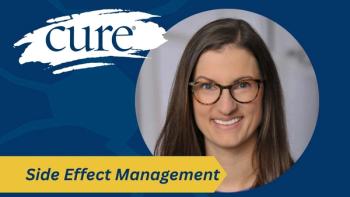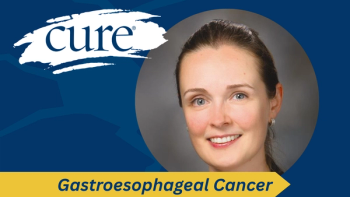
Cognitive Behavioral Therapy and Acupuncture Can Help Survivors With Insomnia Rest Assured
Insomnia is a common issue that many patients and survivors face. However, cognitive behavioral therapy and acupuncture was proven to be helpful in a recent study.
Insomnia is an issue that many cancer survivors struggle with during and after their treatment. But two different interventions — acupuncture and cognitive behavioral therapy for insomnia (CBT-I) — may be able to help, according to research being presented at the 2018 American Society of Clinical Oncology (ASCO) Annual Meeting.
The study involved survivors who were treated for breast, prostate, head and neck, hematologic and colorectal cancers and were also diagnosed with insomnia. Six percent of survivors were treated for more than one type of cancer, and the mean time since diagnosis was about six years. Participants were randomized to either eight weeks of acupuncture or eight weeks of CBT-I.
At baseline, 33 survivors had mild insomnia, 94 had moderate insomnia and 33 had severe insomnia.
“Up to 60 percent of cancer survivors have some form of insomnia, but it is often underdiagnosed and undertreated,” said lead study author Jun J. Mao, M.D., chief, Integrative Medicine Service, Memorial Sloan Kettering Cancer Center in New York.
After the intervention, the researchers measured results using the Insomnia Severity Index (ISI) questionnaire, that has individuals rate their sleep-related issues such as difficulty falling or staying asleep, and how insomnia impacts their day-to-day life. ISI scores range from 0 to 28, and increase with the level of insomnia someone is experiencing.
“Our trial showed that both CBT-I and acupuncture were effective in treating moderate to severe insomnia, although CBT-I was more effective for those with mild symptoms of insomnia. Now patients have more choices to manage their insomnia,” said Mao.
By the end of the intervention, insomnia severity scores for patients who underwent CBT-I fell an average of 10.9 points — from 18.75 to 7.5. The therapy looked to restore individuals’ sleep patterns by: reducing the amount of time spent in bed; limiting activities performed in bed to only sleep and sexual activity; modifying unhelpful beliefs about sleep; and promoting good sleep hygiene, which included avoiding electronic lights (like those from tablets and cell phones) to promote a regular sleep cycle.
Acupuncture, too, decreased the insomnia severity, though not as much as CBT-I did. Patients who underwent acupuncture had an average drop of 8.3 points on the ISI scale, from 17.55 to 9.23.
For patients with moderate to severe insomnia at the beginning of the trial, the percentage of participants who responded to the intervention was comparable (75 percent for CBT-I and 66 percent for acupuncture). However, in the mild insomnia group, improvement rates were much higher when treated with CBT-I than acupuncture (85 percent versus 18 percent, respectively).
Moving forward, this research established that non-pharmaceutical interventions can aid in treating patients and survivors who have insomnia. The next steps in this field include figuring out how to best deliver effective insomnia treatments to diverse groups of cancer survivors, according to the researchers.
“We know that sleep is critical to the health of patients with cancer, from active cancer care through survivorship,” said ASCO President Bruce E. Johnson, M.D., FASCO, in a statement. “This research reinforces the understanding that there are a variety of effective, non-medical tools, including psychological counseling and acupuncture, that can improve sleep and insomnia beyond traditional medicines, which can cause side effects that may diminish quality of life in other ways.”



